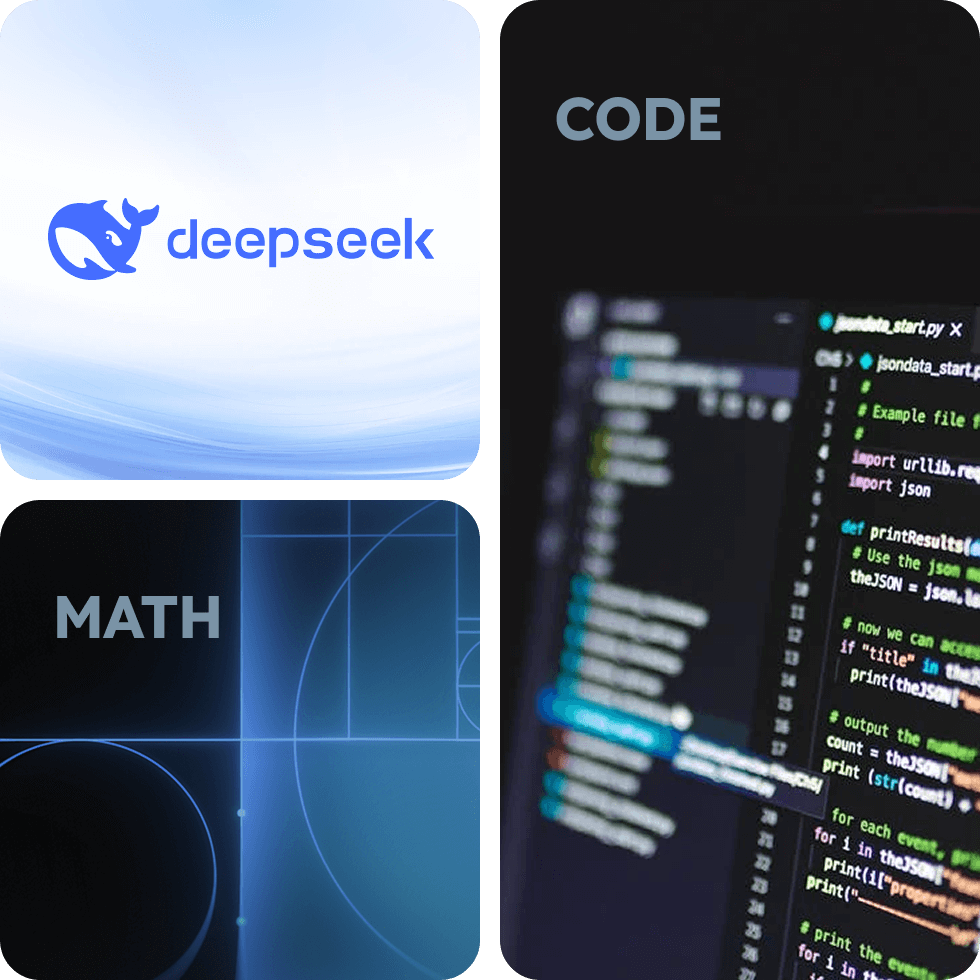One Platform to Build and Deploy AI
Developers get Model APIs, MCP services, and GPUs. Teams get ready-to-run Solutions.
We provide a variety of model API services such as LLM, image, text, audio, video, multimodal, etc., which adds unlimited possibilities for you to expand your application capabilities.
The AI Platform for Builders and Businesses
Power of DeepSeek-R1 for Free*

Yes. NetMind is designed with enterprise-grade security, privacy, and compliance from day one:
- Hosted in partnership with SOC 2-compliant data centers
- Certified under Cyber Essentials
- Full audit logging, end-to-end encryption, and role-based access controls
- Supports use in regulated industries including healthcare, finance, and government We regularly work with enterprise and public-sector clients. Need documentation or a custom agreement (e.g., BAA, DPA)? Just ask.
We offer flexible, transparent pricing for every stage of your AI journey:
- Pay-as-you-go: No upfront commitments. Scale compute as needed
- Enterprise plans: Volume discounts, dedicated support, custom SLAs
- Free credits: Try the platform with zero risk—perfect for pilots and prototyping
Whether you're running a lightweight RAG prototype or scaling multi-modal inference in production, we make it easy to get started and stay in control.
Yes. We offer free credits for qualified new users and approved projects through programs like NetMind Elevate. You can also access test credits via open-source community partnerships.
NetMind supports every layer of modern AI—from infrastructure to enterprise solutions:
- GPU compute for training and inference
- High-performance inference APIs for text, audio, and multimodal models
- Ready-to-use AI applications like document intelligence and audio analysis
- MCP platform for supporting your AI agents at scale
- Domain-specific assistants for healthcare, legal, finance, and more
From startups to enterprise teams—we help you build, deploy, and scale real AI fast.
MCP (Model Context Protocol) is our high-performance serving layer optimized for supporting your AI agents and applications.
Yes, we provide tools to fine-tune models with your proprietary data and support custom pipeline configurations. Our enterprise plans include consulting services for model customization and performance tuning.
We leverage large language models (LLMs), visual language models (VLMs), advanced OCR, and multimodal AI architectures to deliver powerful document understanding and intelligent automation.
Yes. We actively collaborate with:
- Open-source communities
- Research teams
- Infrastructure & data & MCP server partners
- Enterprise solution integrators
If you're building something exciting, reach out to us.
We partner with SOC 2-certified data centers in the US, UK, and Europe, enabling regional compliance and low-latency deployments.
Contact our team or book a demo — we're here to help you build.
Fill in the form and one of our experts will contact you.